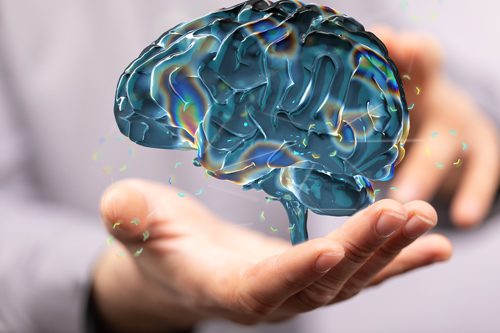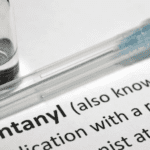 Everything you do, both voluntary and involuntary, is controlled by the most complex organ in your body: the brain. From your breathing and heartbeat to how you walk and talk, your brain controls it all. Not only does it control your every thought, action, and feeling, but your brain also has the amazing ability to modify, change, and rewire itself. This extraordinary ability is called brain plasticity or neuroplasticity. Neuroplasticity allows you to solve complex problems, learn new skills, heal from brain injuries, and recover from harmful habits like alcohol and drug addiction.
Everything you do, both voluntary and involuntary, is controlled by the most complex organ in your body: the brain. From your breathing and heartbeat to how you walk and talk, your brain controls it all. Not only does it control your every thought, action, and feeling, but your brain also has the amazing ability to modify, change, and rewire itself. This extraordinary ability is called brain plasticity or neuroplasticity. Neuroplasticity allows you to solve complex problems, learn new skills, heal from brain injuries, and recover from harmful habits like alcohol and drug addiction.
What Is Neuroplasticity?
Neuroplasticity is your brain’s ability to change its function and physical structure based on life experiences and repeated behaviors, thoughts, and emotions. Whatever you do repeatedly, both good and bad, is wired into your brain’s structure. This is why it can be hard to change a habit or routine: our brain is so used to a certain pathway that forging a new one takes effort. But new paths can be forged, and this neuroplasticity is what allows people to change their behavior and also to adapt to changes forced on them from the outside. When changes in environmental factors, behaviors, neural processes, and those caused by bodily harm occur, neuroplasticity means the brain can create new neural pathways.
Neuroplasticity & Addiction
Neuroplasticity means the brain is constantly learning and changing. Unfortunately, it cannot recognize the difference between good or bad experiences or habits. The brain learns repeated habits, good or bad, helpful or harmful. Because the brain learns whatever you habitually do, it can result in the development of addiction.
When a person uses drugs or alcohol, their brain releases a chemical messenger called dopamine. Dopamine triggers an intense feeling of reward and pleasure. If the person repeatedly uses drugs or alcohol, the constant exposure to the substance creates continuous high dopamine levels influencing neuroplasticity. The brain changes and strengthens the synaptic connections that reinforce addiction. The neuroplastic changes train the brain to continue using drugs or alcohol to achieve pleasurable feelings. As the person continues the habit of substance use, tolerance and addiction develop.
The Role of Neuroplasticity in Addiction Recovery
Neuroplasticity also plays a critical role in addiction recovery. Recovery focuses on replacing or changing the harmful habit of using drugs or alcohol with healthy, positive habits such as exercising, enjoying hobbies, or volunteering. When a person in recovery develops a new healthy habit, the brain changes, creating a new neural pathway reinforcing the new habit. As the new positive habit is continually repeated, the new pathway strengthens through neuroplasticity. The neural pathways of the old harmful habits weaken since they are not being reinforced.
Its Role in Mindful Meditation
When a person practices mindfulness, they focus on only what they are feeling and sensing at the moment, without judgment or interpretation. Research shows mindfulness is a powerful method of changing and strengthening brain networks. It has been proven that mindfulness techniques promote positive changes in the neural pathways related to stress, mood, memory, attention, and focus. Researchers found that practicing mindfulness repeatedly results in physical changes to brain structures.
Applying mindful meditation to addiction treatment changes how the brain responds to distress and cravings by creating new responses to them. When mindful meditation is practiced in this way, it is called Mindfulness-Based Relapse Prevention (MBRP). For people with an addiction to drugs or alcohol, practicing MBRP helps them reduce their risk of relapse by better managing stressful situations. They can have better control over self-destructive impulses and replace them with healthier ways to cope.
Its Role in Behavioral Therapy
The effectiveness of most behavioral therapies is increased by neuroplasticity. For example, cognitive-behavioral therapy (CBT) focuses on having the person recognize, avoid, and reframe harmful or unhelpful thoughts and find effective ways of dealing with them. The effectiveness of CBT and other therapies is increased by neuroplasticity because the brain changes, making it easier to break old habits and replace them with new ones.
If You Need Help
If you or someone you care about is struggling with a drug or alcohol addiction, help is available. At English Mountain Recovery, located in the Smoky Mountains of East Tennessee, our highly skilled professionals will guide you as you travel along the path to recovery. You will learn the skills you need to live a sober life. Now is the time to get the help you need.
 Looking for Tennessee substance abuse treatment? To learn more about programs offered at English Mountain Recovery, call and speak with someone today at (877) 615-8569. We are ready to help you or your loved one recover.
Looking for Tennessee substance abuse treatment? To learn more about programs offered at English Mountain Recovery, call and speak with someone today at (877) 615-8569. We are ready to help you or your loved one recover.About the Author: 
Terry Hurley is a retired educational professional and freelance writer with more than fifty years of experience. A former reading specialist and learning center director, Terry loved her years working with children in the educational field. She has written extensively for print and online publications specializing in education and health issues. For the last six years, her writing focus has been on addiction and mental health issues.




